What's behind the rise of Asia's stock markets
- Published

Analysts believe the strong appetite for Asian stocks can continue
Memory chips and China's economic muscle are among the factors that have put a rocket under Asian stocks this year, pushing markets to record or multi-year highs.
"Everyone hated Asia markets for a long time," says Josh Crabb, head of Asian equities at Old Mutual Global Investors. "Now we've moved on from there".
Moved on indeed: South Korea's Kospi sits at a record; Japan's Nikkei 225 index is above a two-decade high; Hong Kong's Hang Seng is around a 10-year peak, while markets in India, Taiwan and Indonesia are among the others scaling fresh heights.
It's an unusual moment for equities in the region as strong corporate profits, economic stimulus and growth are overshadowing nearby political risks.
"Markets seem impervious to events," says CMC Markets analyst Michael McCarthy. "Sabre-rattling from North Korea barely makes a dent".
And some analysts argue that as long as US markets keep their cool, there's plenty of good times for investors in Asia still to come.
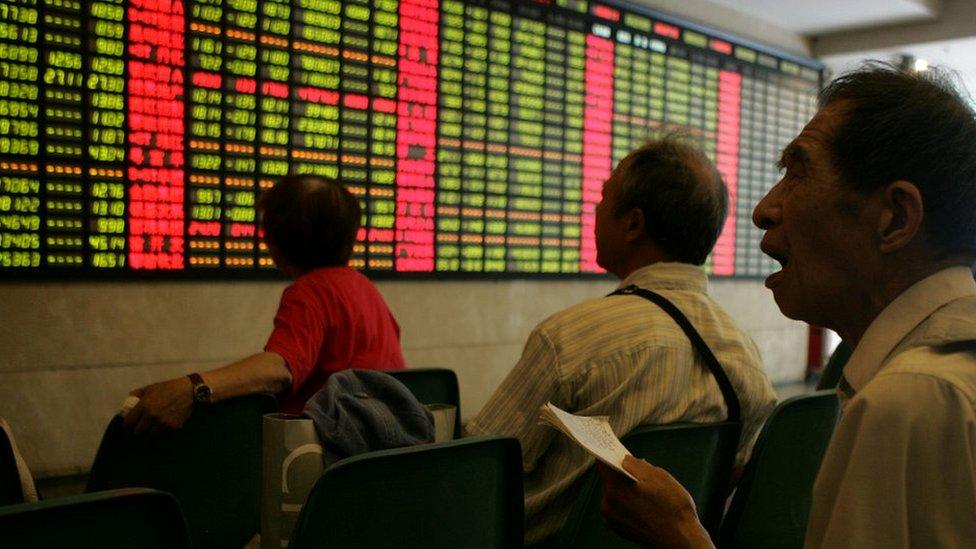
Many markets in Asia are trading at historic or multi-year highs
Since the 2009 crash, global markets have been moving steadily higher - with a few stumbles en route.
Regional growth
Massive liquidity coupled with ultra-low interest rates has created a fertile environment for stocks to thrive. Asia has enjoyed a tailwind from record gains on Wall Street.
At the same time, China's economy - aiming for 6.5% growth this year - has been underpinning the broader region for some time.
The world's second largest economy has a big impact on the fortunes of other countries, even as its growth rate moderates. Take South Korea: It's seen double-digit export growth for the last 11 months, thanks largely to China, which buys about one-quarter of its products sold offshore.
"China's improving economic conditions can really be seen as a trigger for the equity run in Asia," says IG Markets analyst Jingyi Pan.
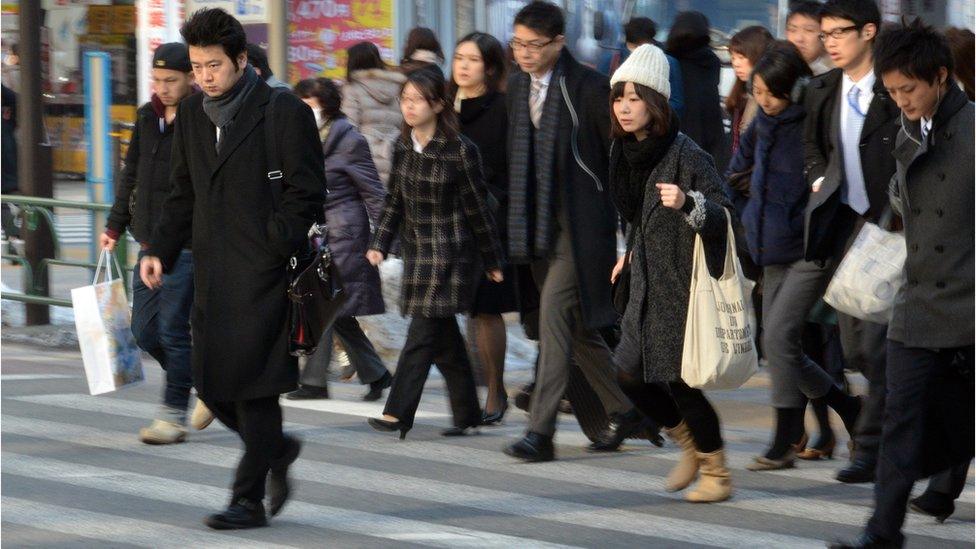
Asia is home to two of the world's three largest economies, China and Japan
Japan's economy is also gathering steam.
Exports are climbing and strong domestic spending on devices like cameras and computers from China is driving growth. Prime Minister Shinzo Abe's re-election, and the likely continuation of his Abenomics policies, was met with cheers from investors.
Ed Rogers, chief executive of Rogers Investment Advisors in Japan believes the benchmark Nikkei index can track even higher.
"Japan has a long way to go. There's $18tn in cash on the sidelines," he says, adding that most of that money is currently invested in low-yielding Japanese government bonds.
"There's a similar boat load of money that wants to get out of China," Mr Rogers says.
Earnings bump
That money could find plenty of homes in Asia where equities are cheap relative to other parts of the world. Companies in the region are strengthening, and well-received results this earnings season have given markets a boost.
For South Korean firms, the outlook is even brighter. CLSA analyst Paul Choi says at the beginning of 2017, people were expecting 10% corporate earnings growth, now that forecast is around 50%.
It's got a lot to do with memory chips. Higher prices for chips used in electronic devices have spurred index heavyweights like Samsung and SK Hynix, as well as the broader market.
In fact, Mr Choi says that fluctuations in the value of memory chips is more threatening to South Korea's market than provocations from its northern neighbour.
Which brings us back to North Korea.
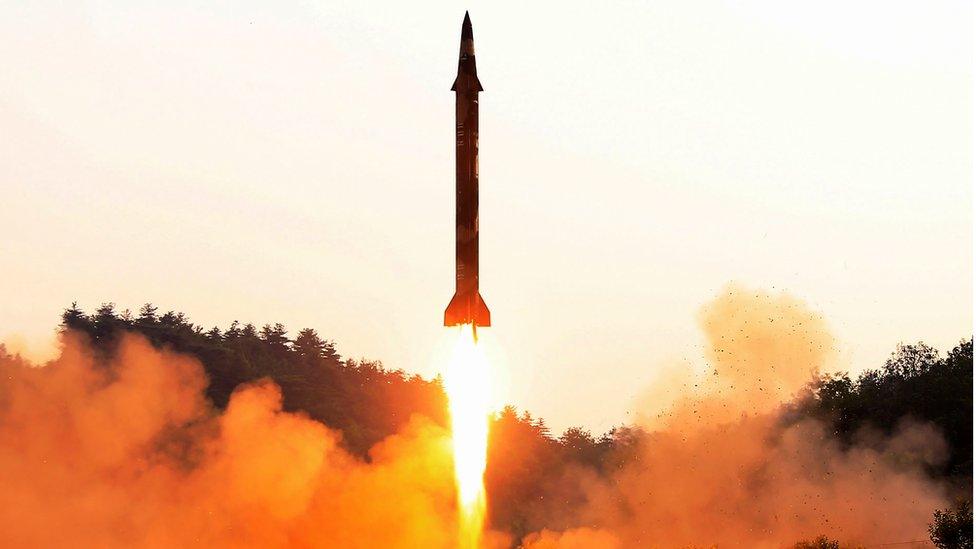
North Korea insists it needs a nuclear-weapons programme to ensure its survival
Investors appear largely unshaken by displays of military aggression - missile tests and provocations against Japan - and analysts say markets have factored in the risk. Rogers Investment Advisors Mr Rogers describes the North Korea threat as "kind of overblown".
That attitude will shift dramatically if threats turn to action. Until then, other risks to the Asian rally loom larger.
'Unknown' threat
Turning off the stimulus tap and the ratcheting up of interest rates will dampen enthusiasm, while analysts point to China's ballooning debt as another threat to the region.
Mr Rogers says political risk and "unpredictability" hang over Asian markets and unexpected moves could stunt recent rallies. The threat of the "unknown" is a familiar refrain from market-watchers in the region.
"The most damaging risks are the ones we don't forecast," says CMC Markets' Mr McCarthy.
A final recurring note of caution is the rush on Wall Street. Recent gains have been inspired by strong earnings, along with hopes of tax reform and business friendly policies under President Trump. But the chorus of concern about the market's sharp rise is growing on Wall Street.
History shows a gradual climb-down from the record highs on US markets is unlikely, and a collapse could shock the world.
"If the US blows up, most things will come off. [Asia] won't be immune," says Josh Crabb of Old Mutual Global Investors.
"Markets tend to get euphoric and then they get fearful. Theoretically you shouldn't have boom and bust, but human behaviour drives stock markets more than logic."
- Published11 October 2017
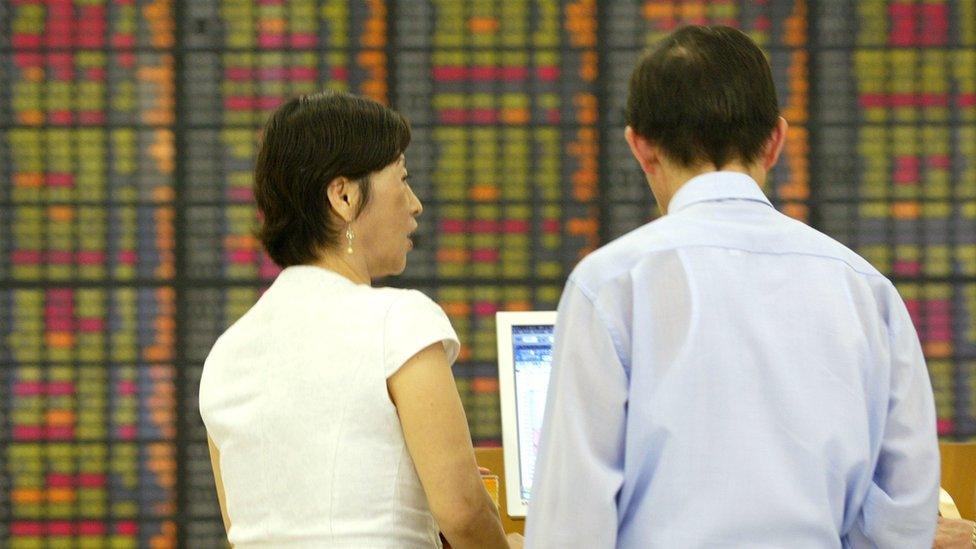
- Published24 October 2017
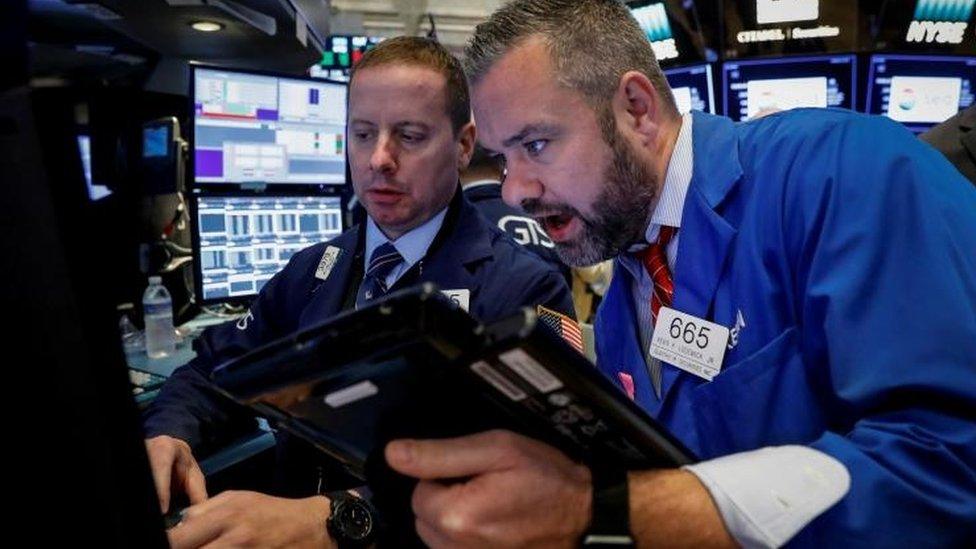
- Published7 July 2017
